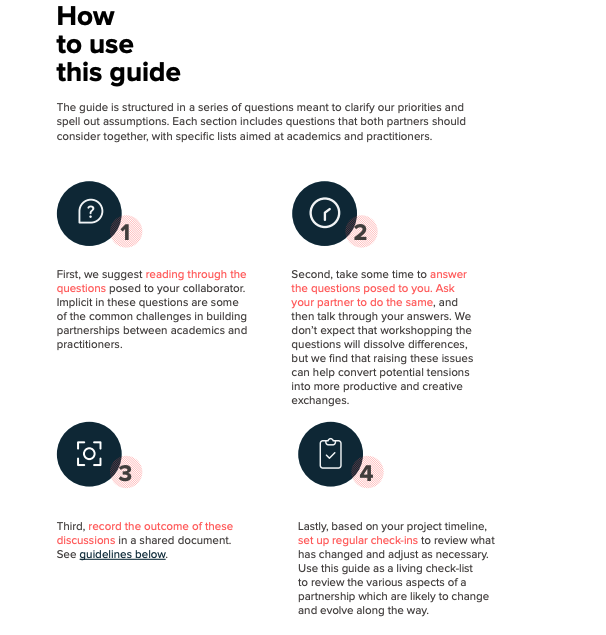This article was written by Alisa Zomer and Varja Lipovsek for the Integration and Implementation Insights (i2insights) at Australia National University. The complete article is available online with excerpts below, and the complete ‘Difficult Conversations’ guide can be found online.
Clarifying incentives and expectations in research collaborations
In which areas do research collaborations between academics and practitioners often run into trouble? What difficult questions can we ask ourselves and our partners at the outset of a research collaboration that can set us up for a successful partnership? How can we learn from past successful and failed aspects of research partnerships?
In our experience four areas where collaborations can have problems are:
- Incentives and expectations
- Timelines
- Collaborative decision making and team buy-in
- Learning and dissemination
In our guide, “How to have difficult conversations” (MIT Governance Lab, 2020), we designed sets of questions for both academic and practitioner partners to clarify priorities and assumptions, so that potential tensions can be turned into productive and creative exchanges. While the questions are written for collaborations between academics in developed countries and practitioner partners in developing countries, they can easily be adapted for other collaborations, including between academics only.
[…]

What has your experience been in clarifying expectations in research collaborations with academic and practitioner partners? Have you found areas other than incentives, timelines, decision making and dissemination to be problematic? What processes for clarifying expectations have you found to be useful? How do you systematically document and learn from the successes and failures of past research collaborations? We’d love to hear your thoughts and comments.
Check out our ‘Difficult Conversations’ guide here.
